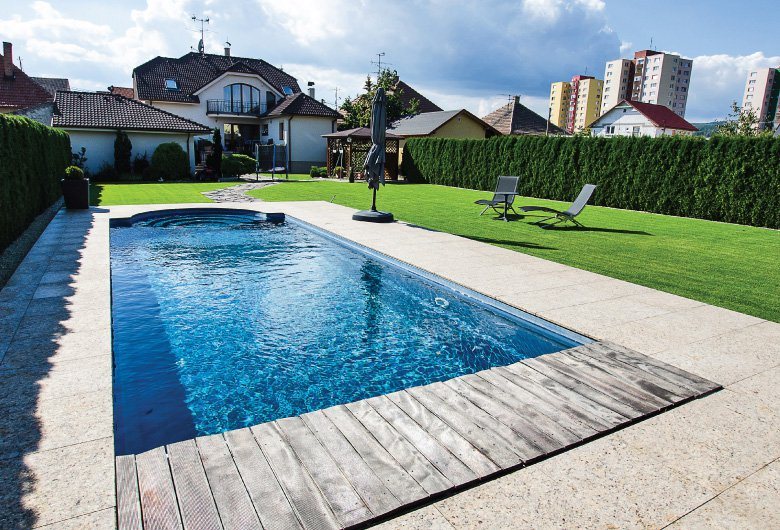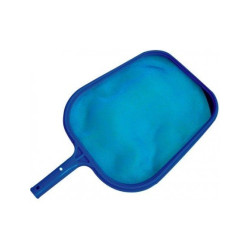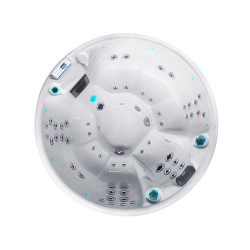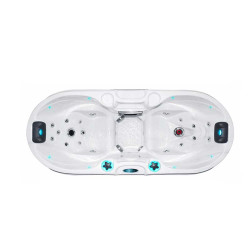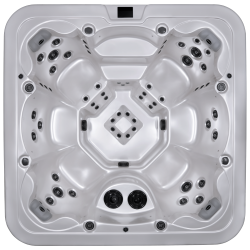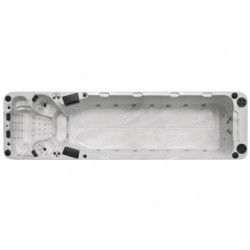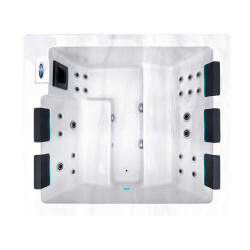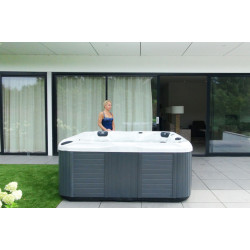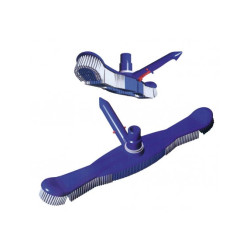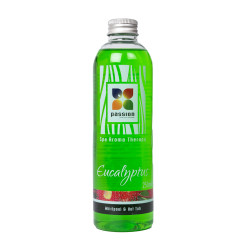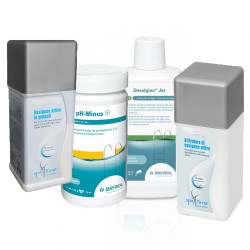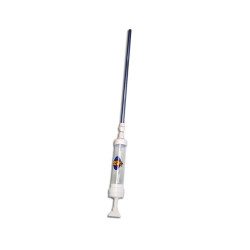Types of pools
First of all, before purchasing a swimming pool, you should decide what kind of pool you need and, of course, where you will install it. They are classified in various ways: plastic, inflatable, concrete, frame, fiberglass, ground. We will list the most popular ones, their advantages and disadvantages.
Stationary pools. These are the strongest and most durable swimming pools, which can last up to 50 years if built properly. These pools are made of reinforced concrete. Stationary pools can be any depth, shape and size. Advantages: durability, versatility, resistance to environmental effects and temperature fluctuations, it is possible to create a pool of any shape. Special materials that are water-resistant should be used for finishing this pool, and tiles made of porcelain, pool mosaic or PVC film are the most suitable for the coating. However, it is important that these materials are not slippery, but have a rough surface. The main disadvantage of stationary pools is that you need to constantly carry out cosmetic repairs. Also, lighting or massage jets cannot be installed in them. Stationary frame pools made of metal panels look like a box. The advantage of these pools is that they do not need to be dismantled when winter begins, but the disadvantages include the fact that such a pool will require a lot of maintenance, as turbidity, dirt and the smell of chlorine often appear.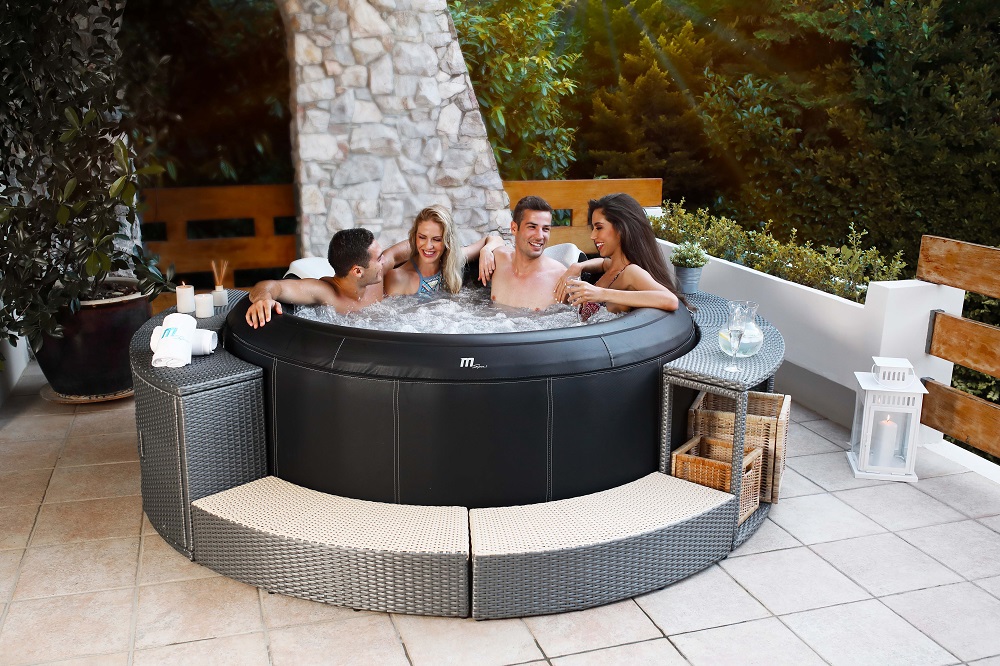
Inflatable pools. These pools are among the simplest and require the least maintenance. Not only are they easy to use, but they are also quite mobile – you can place them practically anywhere. The main advantages of these pools are ease of installation, mobility, extremely compact and significantly cheaper than other pools of similar capacity, and they take up little space when folded. The biggest disadvantage of these pools is their vulnerability, and they usually only last for a couple of seasons.
Assembled frame pools. These pools are probably one of the most popular. They are easy to use, durable and reliable. Frame pools have a PVC liner inside, which is what fills with water. Some argue that these are improved inflatable pools, only stronger. The advantages of prefabricated frame pools: installation does not require any specific knowledge; can be of various shapes and sizes; withstands weight well, can be of large capacity. Disadvantages of these pools: Before using, you need to think about how long it will take to fill it.
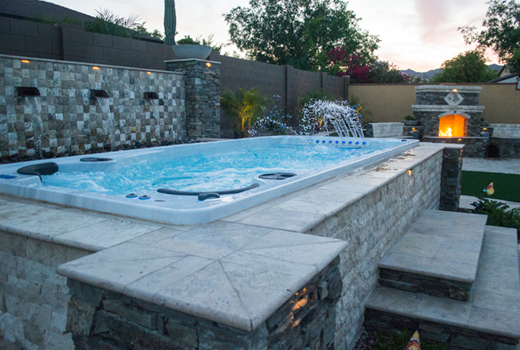 Hydromassage pools. Hydromassage pools are no longer surprising. They are becoming more and more popular and are being installed more and more often. They can be quite small - like a bathtub, or larger, even adapted for public use. The advantage of these pools is that they can be used even by those who are post-injury. Hydromassage pools relax, calm and improve human health. The main disadvantage is the price. However, their installation is still not for everyone.
Hydromassage pools. Hydromassage pools are no longer surprising. They are becoming more and more popular and are being installed more and more often. They can be quite small - like a bathtub, or larger, even adapted for public use. The advantage of these pools is that they can be used even by those who are post-injury. Hydromassage pools relax, calm and improve human health. The main disadvantage is the price. However, their installation is still not for everyone.
What accessories are needed for swimming pools?
Every pool, no matter how big or small, needs more or less different accessories. Therefore, before installation, it is worth thinking about what additional accessories will be needed and how much it will cost. Some of them are necessary, while others simply increase the comfort of using the pool. So, some essential accessories:
• A filter pump is necessary for the pool to keep the water clean and not cloudy. Various filtration pumps are available on the market, and they differ in price, power and technology. When choosing this supplement, you should first pay attention to its power. A larger pool, of course, requires a more powerful pump. Water filtration pumps can be selected with either a pressure filter or a trickling water system.
• Ladders ensure safety when using the pool, making it easier to get in and out. Usually, the pool ladder is included in the set, but there are exceptions, in such cases you have to purchase it yourself. When the pool is about 80 cm high, it is already worth thinking about buying a ladder.
• Cleaning kits are essential in large pools, as water pump filters do not remove all dirt. Usually, the cleaning kit consists of a telescopic pole with a brush and other nozzles, and sometimes a special container for dirt.
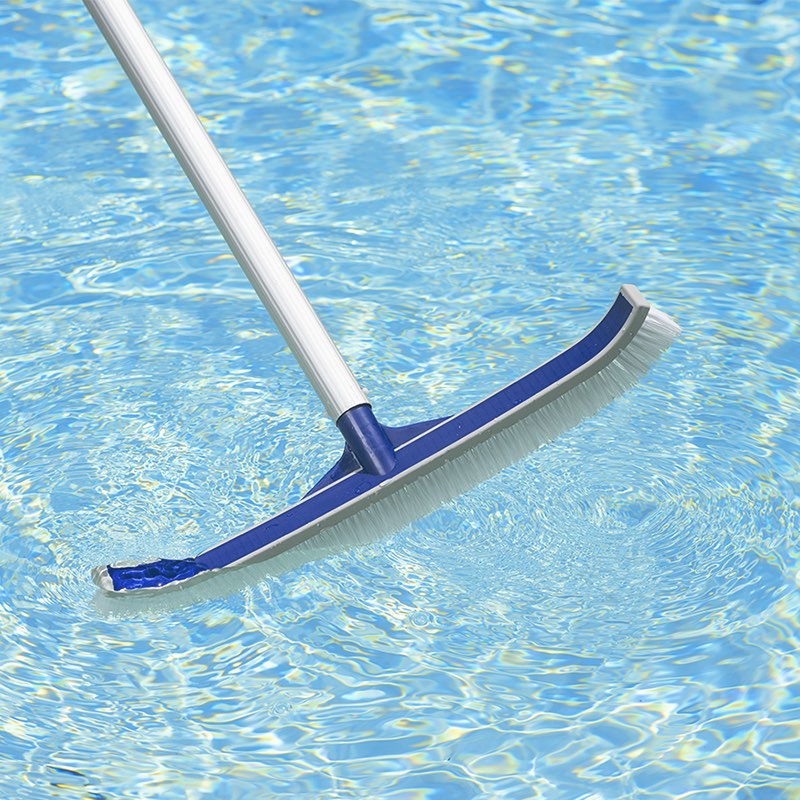
• With the help of a skimmer, you can easily and effectively clean the surface of the water. By connecting it to the filter pump, you will also clean larger dirt from the surface of the water, such as leaves and the like.
• Water heating and temperature maintenance systems work best in smaller pools. These systems can range from solar blinds to heaters. When heating the pool water, remember that the air temperature must be several degrees higher.
• Ozone and chlorine generators ensure the cleanliness of the pool. Although the generators are quite expensive, they pay for themselves over time, as significantly less chemical cleaning agents will be needed. Ozone and chlorine generators remove viruses, bacteria and other harmful compounds from water. These devices are easy to use and the water becomes clean and without any chlorine smell.
It doesn't matter which pool you choose, big or small, indoor or outdoor, stationary or mobile, the most important thing is that it gives you pleasure. Therefore, after deciding what kind of pool you want, it would be best to contact specialists in this field who will help you install the pool in the desired location. Be that as it may, only a properly equipped swimming pool will provide comfort, benefits and fewer worries. In addition, specialists can always advise on how to maintain and care for the swimming pool so that it will serve for many years. After installing the pool, you will only need to purchase the desired and necessary accessories and install them. And now you can enjoy the pleasures of water.

